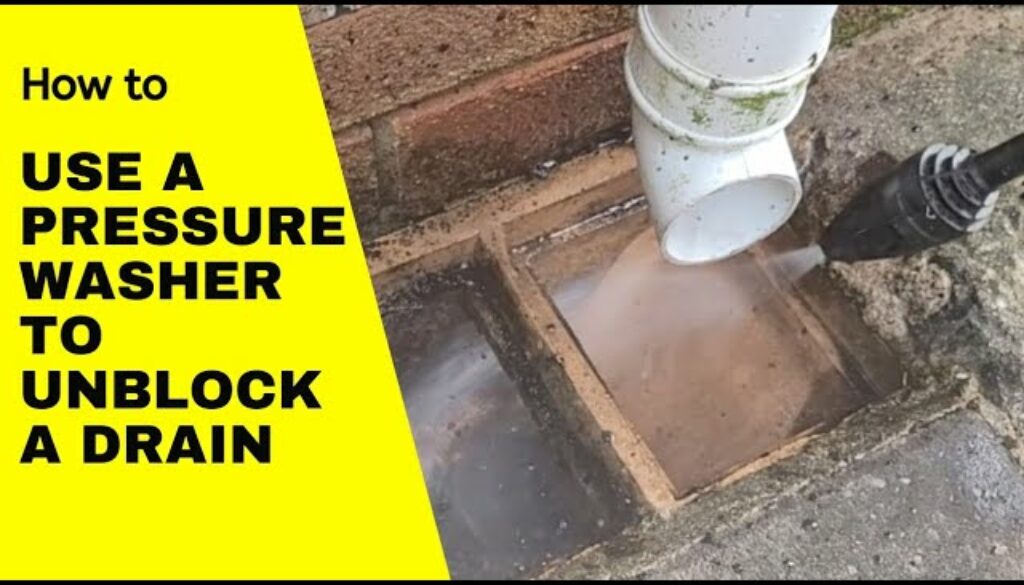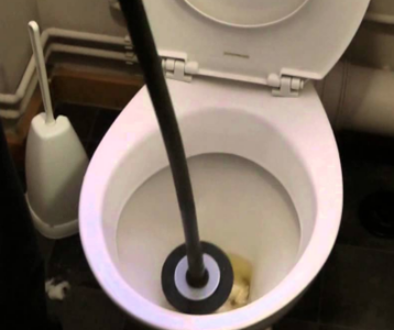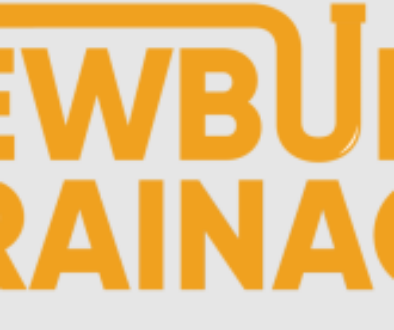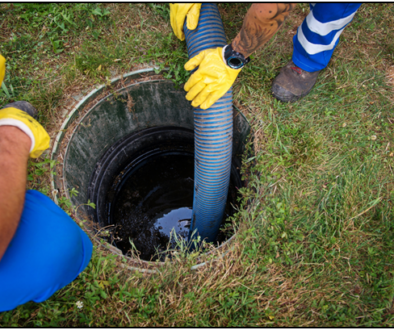Can I Use A Pressure Washer To Unblock A Drain
Do you ever find yourself dealing with a clogged drain, wondering if there’s a quick and effective way to solve the problem? Well, you’re in the right place because today we’re going to explore the question, “Can I use a pressure washer to unblock a drain?” 🚿💦
When it comes to unclogging drains, most people think of plungers or drain snakes. But have you ever considered the power of a pressure washer? Yes, you heard that right! A pressure washer, typically used for cleaning outdoor surfaces, can also be a handy tool for unclogging pesky drains. 💪🚀
So, if you’re tired of dealing with slow-draining sinks or showers and wondering if a pressure washer could be the solution to your plumbing woes, keep reading! We’ll dive into the ins and outs of using this powerful tool to clear blockages and restore the smooth flow of water. Let’s get right into it! 💦💡
Wondering if you can use a pressure washer to unblock a drain? While it may seem like a good idea, it’s not recommended. Pressure washers are high-powered machines designed for outdoor use, not for plumbing. They can damage pipes and push the blockage further down, causing more problems. It’s best to consult a professional plumber who has the right tools and expertise to safely unclog your drain without causing any damage.

Can I Use a Pressure Washer to Unblock a Drain?
In this article, we will explore the question of whether a pressure washer can be used to unblock a drain. Many people wonder if this powerful cleaning tool can provide a quick and effective solution for clearing clogged drains. We will delve into the pros and cons, safety considerations, and alternative methods to help you make an informed decision. So, let’s dive in and find out if a pressure washer is the right tool for the job!
The Basics of Using a Pressure Washer to Unblock a Drain
If you’re considering using a pressure washer to unblock a drain, it’s essential to understand how it works. A pressure washer uses the force of water delivered at high pressure to remove dirt, grime, and other debris from various surfaces. When it comes to clearing a drain, the idea is to push the clog out of the pipe using the force of the water.
However, it is crucial to note that using a pressure washer to unblock a drain is not always recommended and can potentially cause more harm than good. Let’s explore the limitations and potential risks involved in this approach.
1. The Risk of Damaging Pipes
One significant concern when using a pressure washer to unblock a drain is the risk of damaging the pipes. The high-pressure water jet can be powerful enough to cause cracks or leaks in older or fragile pipes. If you’re unsure about the condition of your drainage pipes, it’s best to consult a professional plumber before attempting to use a pressure washer.
Moreover, different pipe materials may have varying tolerance levels to pressure. For example, PVC pipes are generally more flexible and can handle higher pressures, while older clay or cast iron pipes may be more susceptible to damage. Consider these factors before deciding to use a pressure washer.
In addition to the risk of damaging pipes, using a pressure washer without proper knowledge or experience can lead to injuries. The high-pressure water stream can cause severe cuts or bruises if not handled correctly. Safety should always be a priority, and it’s recommended to wear appropriate protective gear when using a pressure washer.
2. Ineffectiveness for Some Types of Clogs
While a pressure washer can be effective for certain types of clogs, it may not always be the ideal solution for every situation. For example, if the clog is caused by solid obstructions like tree roots or solidified grease, a pressure washer may not be powerful enough to dislodge them. In such cases, it’s better to consult a professional who can assess the situation and recommend the most appropriate method for clearing the drain.
It’s also worth noting that some clogs may require the use of specialized tools or techniques, such as drain snakes or hydro jetting equipment. These tools are specifically designed to tackle stubborn blockages and may provide better results compared to a pressure washer.
Understanding the nature of the clog is crucial in determining whether a pressure washer is a suitable option or if an alternative method should be considered.
3. Potential Environmental Concerns
Using a pressure washer to unblock a drain can also raise environmental concerns. The forceful stream of water from the pressure washer can dislodge and carry away not only the clog but also any chemicals or pollutants present in the pipe. This can result in these substances entering the surrounding soil or waterways, potentially causing harm to the environment.
If you do decide to use a pressure washer, it’s essential to consider the environmental impact and take appropriate measures to minimize any potential contamination. This may include using eco-friendly cleaning products or taking steps to capture and dispose of the water safely.
Now that we have explored the risks and limitations of using a pressure washer to unblock a drain, let’s look at alternative methods that may be more suitable for different situations.
Key Takeaways: Can I Use a Pressure Washer to Unblock a Drain?
- Using a pressure washer to unblock a drain can be risky and may cause further damage to your plumbing.
- Pressure washers are powerful machines that can lead to pipe bursts or dislodging of joints if used incorrectly.
- It’s best to use non-invasive methods like plungers or drain snakes to clear a clogged drain.
- If you still want to use a pressure washer, make sure to use low-pressure settings and a sewer jetter attachment designed for drains.
- Consult a professional plumber if you’re unsure about handling a clogged drain to avoid potential accidents or costly repairs.
Frequently Asked Questions
Are you wondering if a pressure washer can be used to unblock a drain? Below are answers to some common questions related to this topic.
Can a pressure washer effectively unblock a drain?
While a pressure washer may seem like a powerful tool to clear a clogged drain, it’s not recommended for this purpose. Pressure washers are designed for outdoor use and can generate extremely high water pressure, which can cause damage to your plumbing pipes. Using a pressure washer to unblock a drain can lead to even bigger problems, such as pipe bursts or leaks, and may require costly repairs.
It’s best to use appropriate plumbing tools or consult a professional plumber to safely and effectively unblock a drain without causing further damage to your plumbing system.
What are the dangers of using a pressure washer on drains?
Using a pressure washer on drains can pose several dangers. The high water pressure from a pressure washer can potentially damage the pipes, leading to leaks, cracks, or even bursts. Moreover, if the drain is already partially clogged or blocked, the pressure from the washer may cause the blockage to become lodged deeper in the pipes, making it more difficult to remove.
In addition to the risks of damaging your plumbing system, there is also a risk of injury to yourself. The force of the water from a pressure washer can be dangerous, especially if not properly controlled. It’s important to prioritize safety and use the correct tools for drain unblocking.
What are the recommended methods for unblocking a drain?
There are several recommended methods you can try to unblock a drain. One common method is to use a drain snake or auger, which can help break up and remove blockages. Another option is to use a plunger to create suction and dislodge the blockage. You can also try using a chemical drain cleaner, but be cautious as these can be harsh on your pipes and should only be used according to the instructions.
If these methods don’t work or if you’re unsure about tackling the issue yourself, it’s best to call a professional plumber. They have the expertise, tools, and experience to safely and effectively clear the blockage and resolve any underlying plumbing issues.
How can I prevent drain blockages?
To prevent drain blockages, there are a few simple steps you can take. First, avoid pouring grease, oil, or food scraps down the drain, as these can solidify and cause blockages. Use drain screens or strainers to catch hair, food particles, and debris before they enter the drain. Regularly flush your drains with hot water to help clear any buildup. Lastly, be mindful of what you flush down the toilet and only flush toilet paper, as other items can cause clogs.
Implementing these preventative measures can help keep your drains flowing smoothly and reduce the likelihood of blockages.
When should I call a professional plumber?
If you’ve tried various methods to unblock your drain and the blockage persists, it’s time to call a professional plumber. They have the expertise to accurately diagnose the issue and use specialized tools to remove stubborn clogs. Additionally, if you notice multiple drains in your home are blocked, slow draining, or emitting foul odors, it could be a sign of a more significant plumbing problem that requires professional attention.
It’s better to seek the help of a professional plumber sooner rather than later to avoid further damage and ensure the blockage is properly resolved.
Summary
Using a pressure washer to unblock a drain may seem like a good idea, but it can actually cause more harm than good. The high pressure can damage the pipes and push the blockage further down, making the problem worse.
Instead, it is recommended to try safer methods such as using a plunger or a drain snake to remove the blockage. These methods are gentle on the pipes and can effectively clear the drain without causing any damage. If these methods don’t work, it’s best to call a professional plumber who has the right tools and expertise to handle the job safely.




